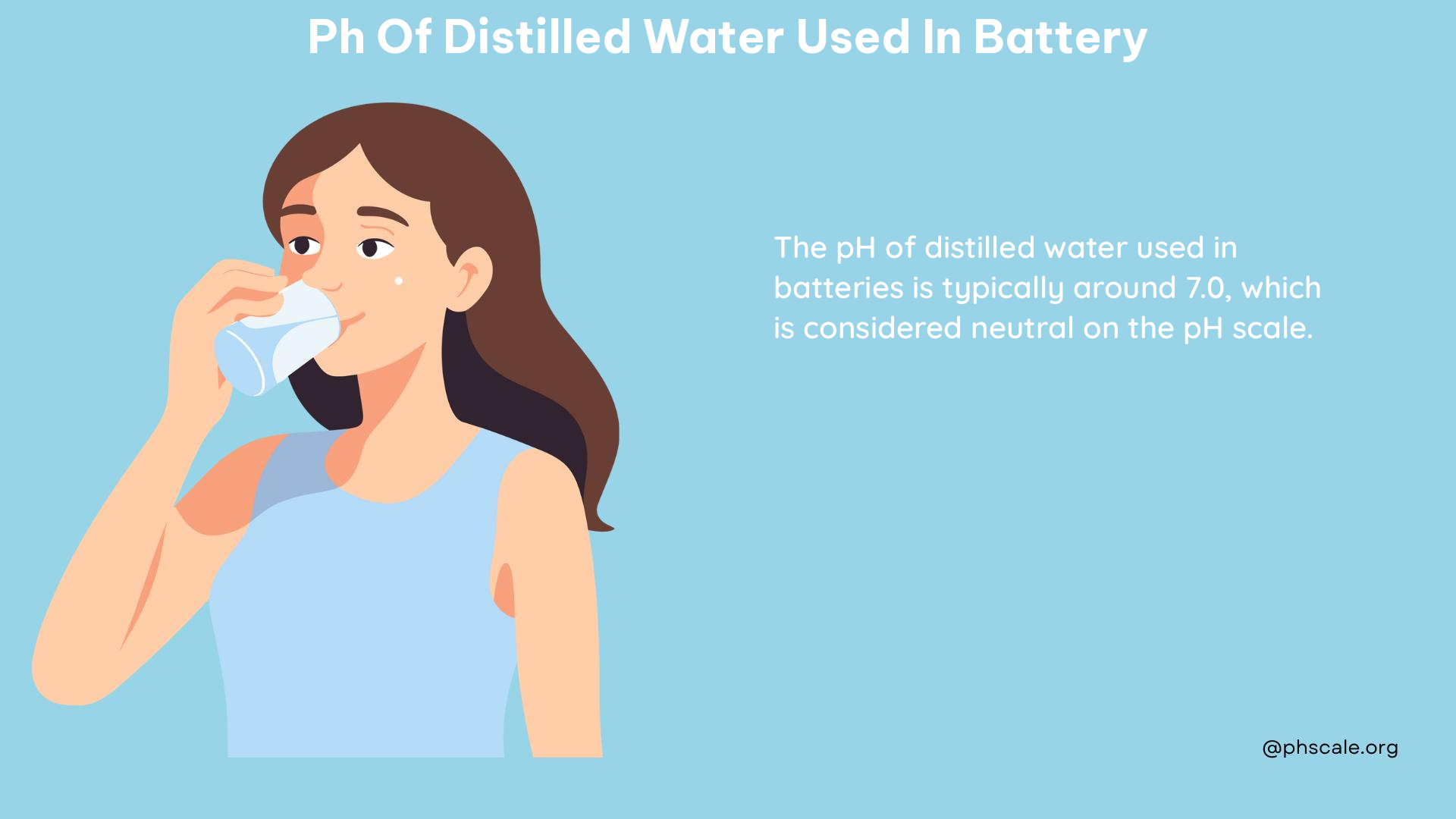The pH of distilled water used in batteries is a crucial factor in maintaining optimal battery performance and longevity. Distilled water, being free from impurities and minerals, plays a vital role in facilitating the essential chemical reactions within the battery, ensuring efficient power generation and prolonged battery life.
Ideal pH Range for Distilled Water in Batteries
The ideal pH range for distilled water used in batteries is neutral, which is around pH 7. This neutral pH helps maintain the delicate acid-water balance necessary for the battery’s electrochemical processes to function effectively.
How pH of Distilled Water Affects Battery Performance and Longevity

The pH of distilled water used in batteries can significantly impact the battery’s performance and longevity in several ways:
Chemical Reactions
Water is a key component of the electrolyte solution in batteries, facilitating the essential chemical reactions that produce electricity. The pH of the distilled water helps maintain the acid-water balance necessary for these reactions to occur efficiently, ensuring optimal battery performance.
Impurities and Minerals
The presence of impurities and minerals in water can disrupt the chemical processes within the battery, leading to decreased performance and increased wear. Distilled water, being free from these contaminants, ensures that the chemical reactions occur smoothly, contributing to the battery’s longevity.
Battery Acid pH
The pH of the battery acid, typically between 0 and 1, is crucial for the battery’s electrochemical reactions. The strong acidity of battery acid plays a vital role in the battery’s function, and the pH of the distilled water used in the electrolyte solution must be balanced to maintain this acidity.
Dealing with Contaminants and Chemicals
To ensure the optimal pH of distilled water for battery use, it is essential to handle and store the water properly:
- Contamination Prevention: Store distilled water in well-ventilated areas away from easily ignitable substances and contaminants to prevent accidental exposure and contamination.
- Safety Measures: When handling battery acid, wear protective gear such as gloves, goggles, and clothing to prevent chemical burns. In the event of accidental exposure, rinse with copious amounts of distilled water and seek medical attention.
- Adjusting pH Level: If the pH level of the battery acid falls too low, adding more distilled water can help restore a functional level. Conversely, if the pH turns out too high, introducing more sulfuric acid can cause a decrease. Always follow the manufacturer’s guidelines for adjusting the pH level.
Helpful pH Quantity to Consume and Balance
To maintain the ideal pH range of distilled water for battery use, follow these guidelines:
- Use Distilled Water: Ensure that the water used for battery maintenance is distilled or demineralized, with an electrical conductivity less than 10-5 ohm-1.
- Monitor pH Level: Regularly check the pH level of the battery acid using pH test strips, pH meters, or specific chemical indicators to ensure it remains within the optimal range.
- Adjust pH Level: If necessary, adjust the pH level by adding distilled water or sulfuric acid according to the manufacturer’s guidelines.
History and Alternative Solutions
The use of distilled water in batteries dates back to the early days of battery development. As technology advanced, the importance of using high-purity water for battery maintenance became more apparent. Today, distilled water remains the preferred choice for battery maintenance due to its ability to maintain the optimal chemical balance within the battery.
While distilled water is the standard choice, some alternative solutions, such as reverse osmosis (RO) water, have also been explored for battery maintenance. However, the suitability of RO water for batteries is still a topic of ongoing discussion, as it may not always meet the strict purity requirements necessary for optimal battery performance.
